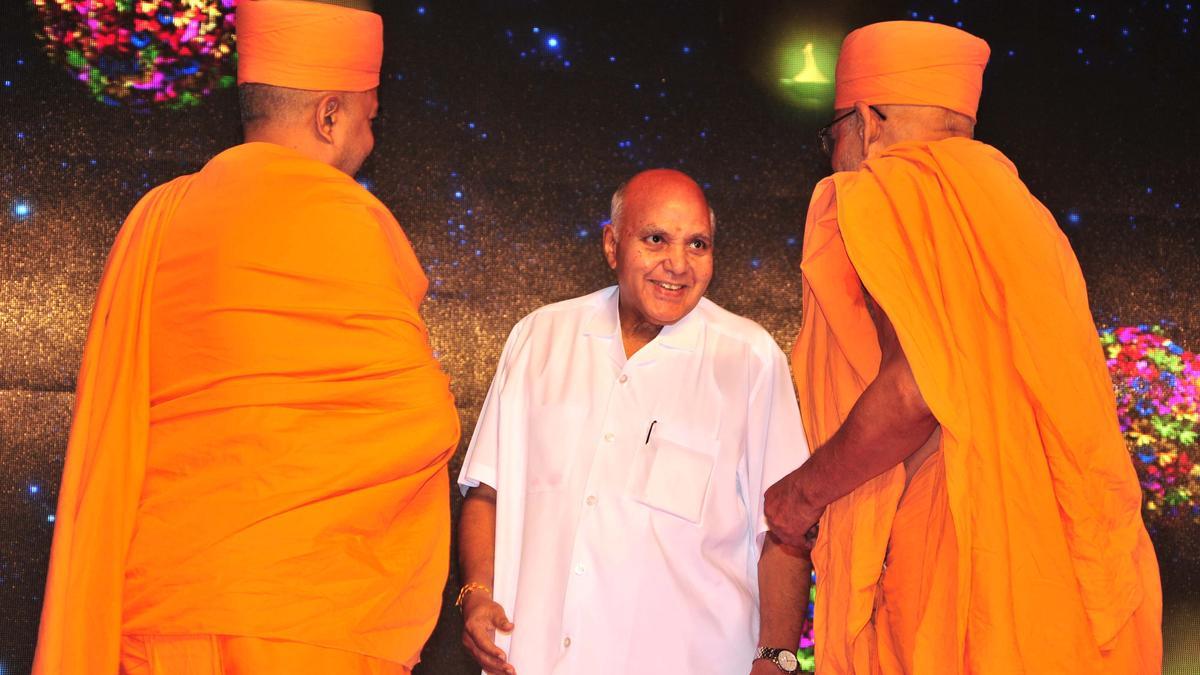
In 1996, during the awe-inspiring launch of Ramoji Film City, Ramoji Rao articulated his grand vision to an exclusive group of media personnel. He powerfully proclaimed that a filmmaker could “walk in with a script and walk out with a film,” epitomizing his ambitious dream for the facility. Ramoji Film City, the world’s largest film studio complex, was meticulously designed as a one-stop destination for filmmakers, equipped with all necessary infrastructure and resources to bring a film to fruition from start to finish. Ramoji Rao disclosed, “This would probably be my last venture,” signaling the culmination of a long and illustrious career.
In 1974, a remarkable event occurred in the erstwhile Andhra Pradesh as residents woke up to find sample copies of a novel Telugu newspaper, Eenadu, under their doors as early as 5 am. This heralded a new era with the birth of Eenadu, a Telugu daily that quickly resonated with the public owing to its innovative design, engaging content, attractive language, and pioneering headlines. Eenadu soon became a mainstay in Telugu households, revolutionizing journalism across the region.
Following Eenadu’s success, Ramoji Rao sought to broaden his media influence by launching Newstime, an English daily. This provided an ideal platform for seasoned journalists while also carving out opportunities for aspiring journalists to launch their careers. His hands-on approach in journalism, marked by personal story approval processes, left an indelible mark on the industry. The thrill felt by reporters when Ramoji Rao himself circled their stories with a red pen was unparalleled, embodying a sense of validation and achievement.
Ramoji Rao’s business prowess extended beyond media into the consumer goods sector under the auspices of Ushodaya Enterprises. The launch of Priya pickles and Soma fruit drink marked striking successes. Priya pickles transcended local boundaries to become a staple among Telugu families globally, cherished for their traditional taste and superior quality. Although short-lived, Soma, an innovative fruit drink packaged in sachets, showcased his keen foresight and the company’s innovative spirit in the FMCG sector.
Another testament to Ramoji Rao’s diverse entrepreneurial skills is Margadarsi, a financial services company, and Mayuri, a film distribution entity. Both ventures stand as exemplars of his varied interests and successful forays into different business domains.
.
Ramoji Rao’s monumental journey into the film industry took root in 1983 with the establishment of Ushakiron Movies. The production house quickly rose to prominence by delivering numerous critically acclaimed and commercially successful films across various Indian languages. The 1984 film, Srivariki Premalekha, directed by Jandhyala, was an early success, marking a paradigm shift towards light-hearted, family-oriented storytelling in Telugu cinema.
In 1984, another milestone was achieved with the release of Mayuri, directed by Singeetham Srinivasa Rao. The film, grounded in real-life narratives, portrayed the incredible story of Sudha Chandran, a classical dancer who overcame the tragic loss of her leg. The realism and authenticity of her performance propelled the film to great success and warrants a Hindi adaptation, Nache Mayuri.
When Ramoji Rao’s attention was captured by the story of a tribal woman protesting against deceit in a remote Orissa village, it inspired him to produce ‘Mouna Poratam,’ catalyzing the debut of actress Yamuna. Furthermore, Ramoji Rao’s penchant for biopics continued with ‘Ashwini,’ based on the life of former track and field athlete Ashwini Nachappa, who is often referred to as India’s FloJo. Ashwini’s portrayal of herself added an authentic touch and earned her a brief stint in the Kannada film industry.
Ushakiron Movies produced many other commercial blockbusters, such as the Vijayashanti-starrer ‘Pratighatana’ (1984), ‘Chitram’ (1999), and ‘Nuvve Kaavaali’ (2000), among others. These films not only achieved commercial success but also served as launchpads for several promising actors, directors, and technicians.
Beyond his production house, Ramoji Rao expanded his media empire further with the establishment of the Ramoji Group. This included venturing into television with the launch of Eenadu Television Network in 1995, South India’s first 24-hour entertainment satellite channel. ETV introduced groundbreaking shows like the soap opera ‘Antarangalu’ and the highly popular music reality show ‘Paduta Teeyaga.’ The latter, celebrating its 25-year milestone, redefined SP Balasubrahmanyam’s career, transforming him into a beloved host while discovering and nurturing singing talent across Telugu states.
The passing of Ramoji Rao is a substantial loss to the media and film industry. Yet, his profound impact and pioneering spirit in Indian media and cinema will forever be remembered, leaving a legacy that continues to inspire.












